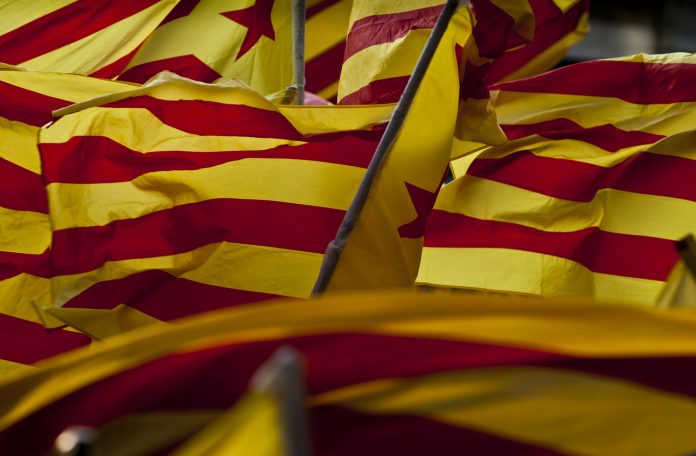A European arrest warrant issued for five former Catalan ministers looks unlikely to change the European Union’s settled view of the separatists’ standoff with the Spanish government. Europe’s leaders still consider it a judicial matter.
The former Catalan leader Carles Puigdemont was arrested in Germany and his former education minister, Clara Ponsatí, turned herself in to Scottish police.
According to The Guardian, however, Europe’s leaders show little sign of budging from their position that Catalonia’s independence drive must remain strictly a matter for Madrid.
According to The Guardian, many believe the EU could offer behind-the-scenes mediation, and that Madrid might benefit from being told, informally, that it is not really helping itself by tackling Catalonia’s unrealistic drive for independence as it would be high treason.
But few member state governments see any benefit in either angering Madrid or encouraging secessionists.
The Spanish case against Puigdemont and other members of his former government who fled abroad – besides Ponsatí in Scotland, three are currently in Belgium and two in Switzerland – is therefore a judicial, not a political, question, they believe.
“Spain is a democracy, where the rule of law exists,” Angela Merkel’s spokesman said after Puigdemont was detained near the Danish border on his way from Finland to Brussels, where he had been in self-imposed exile since late October.
Germany’s far-left Die Linke party, however, disagrees. It called Puigdemont’s arrest a disgrace, arguing – in the words of its European affairs spokesman, Andrej Hunko, that the criminal case “is clearly politically motivated”.
In Scotland, the SNP MP Angus MacNeil said the Scottish police should not be “doing the political work of the fascists” in the Spanish government, while in Spain, the Basque nationalist MP Izaskun Bilbao demanded urgent EU action on Spain’s “territorial problems”.
The former Catalan leaders wanted on charges ranging from rebellion to misuse of public funds for organising last October’s independence referendum, which Madrid ruled was unconstitutional.

